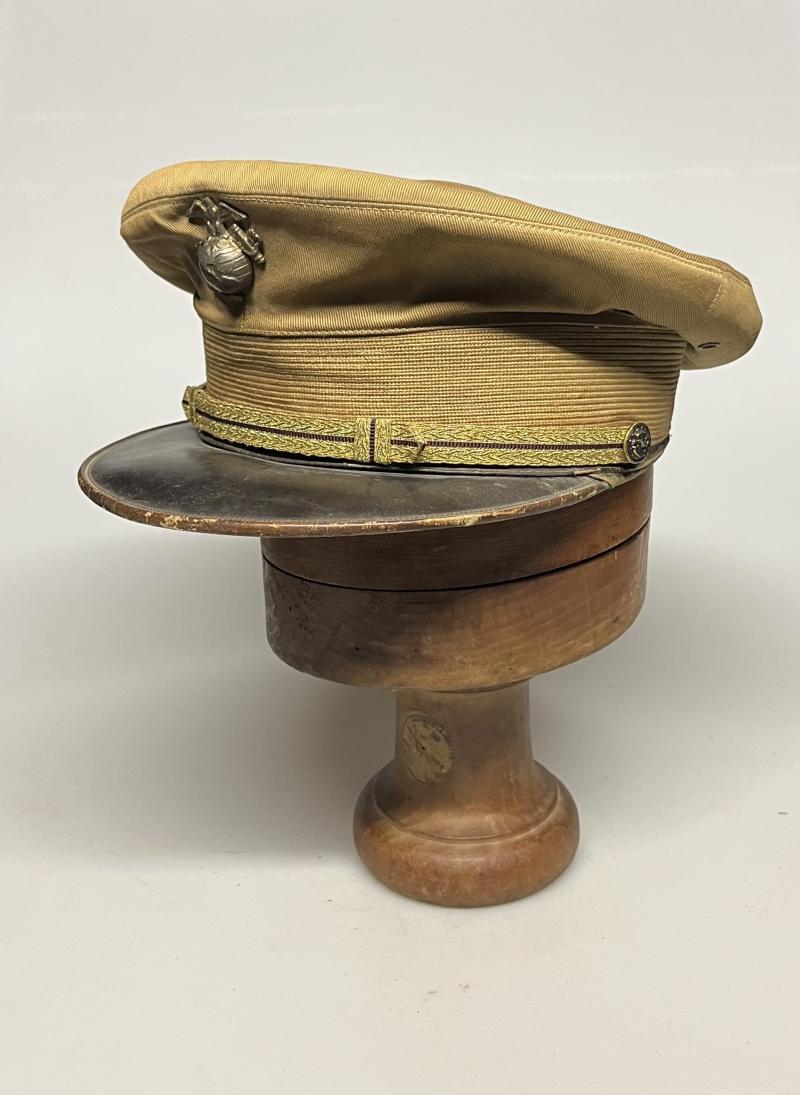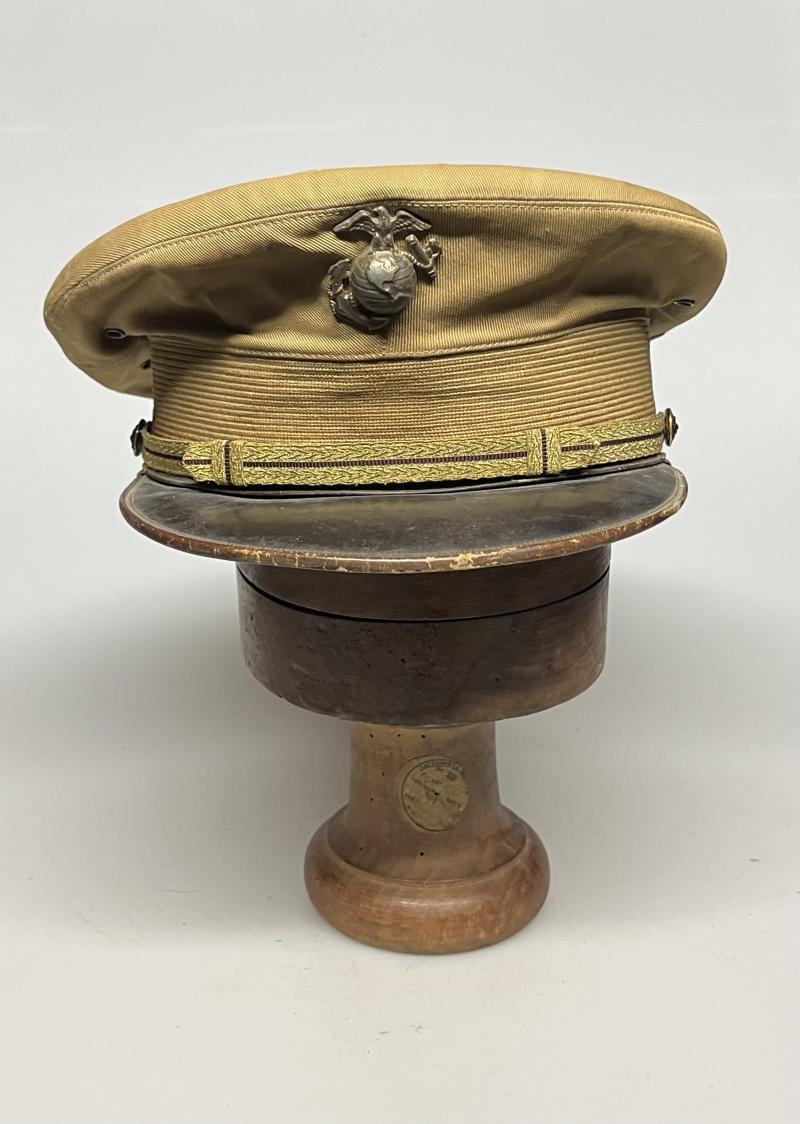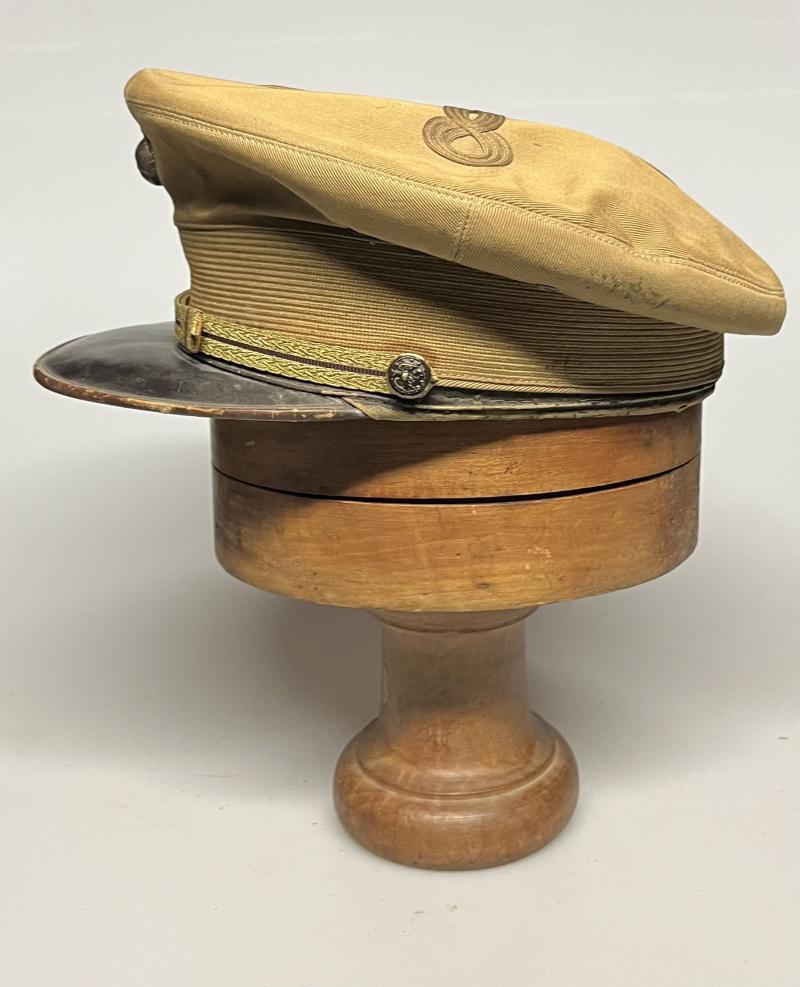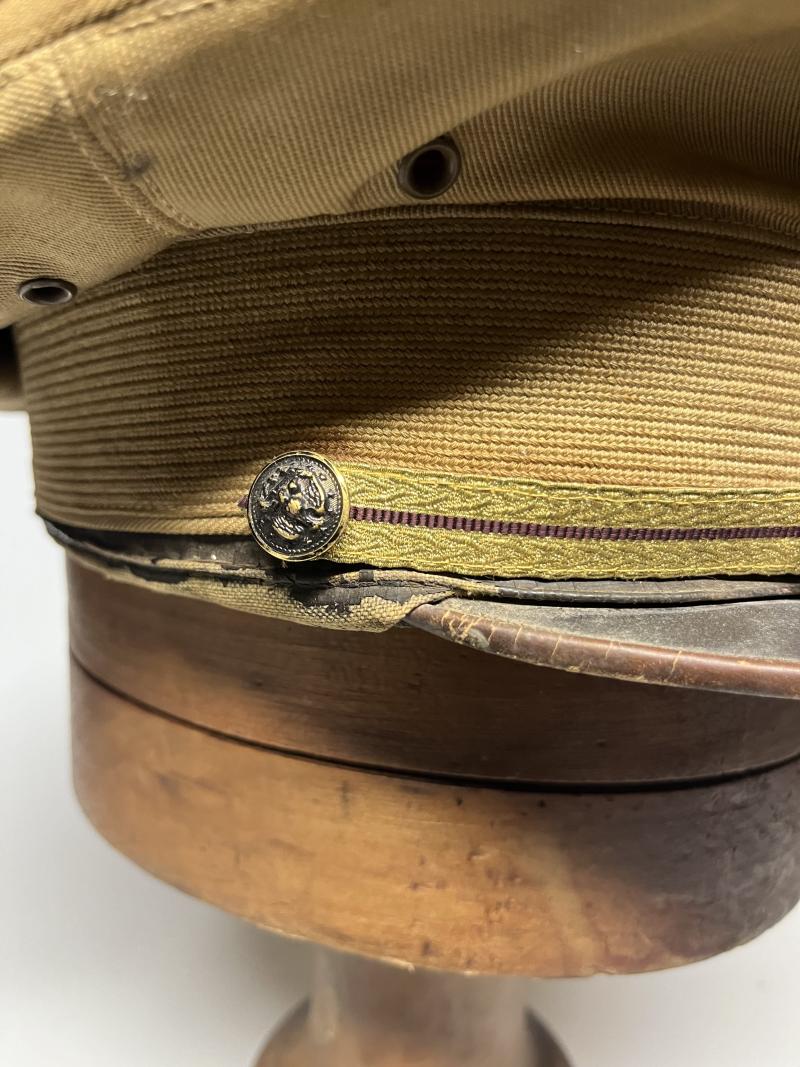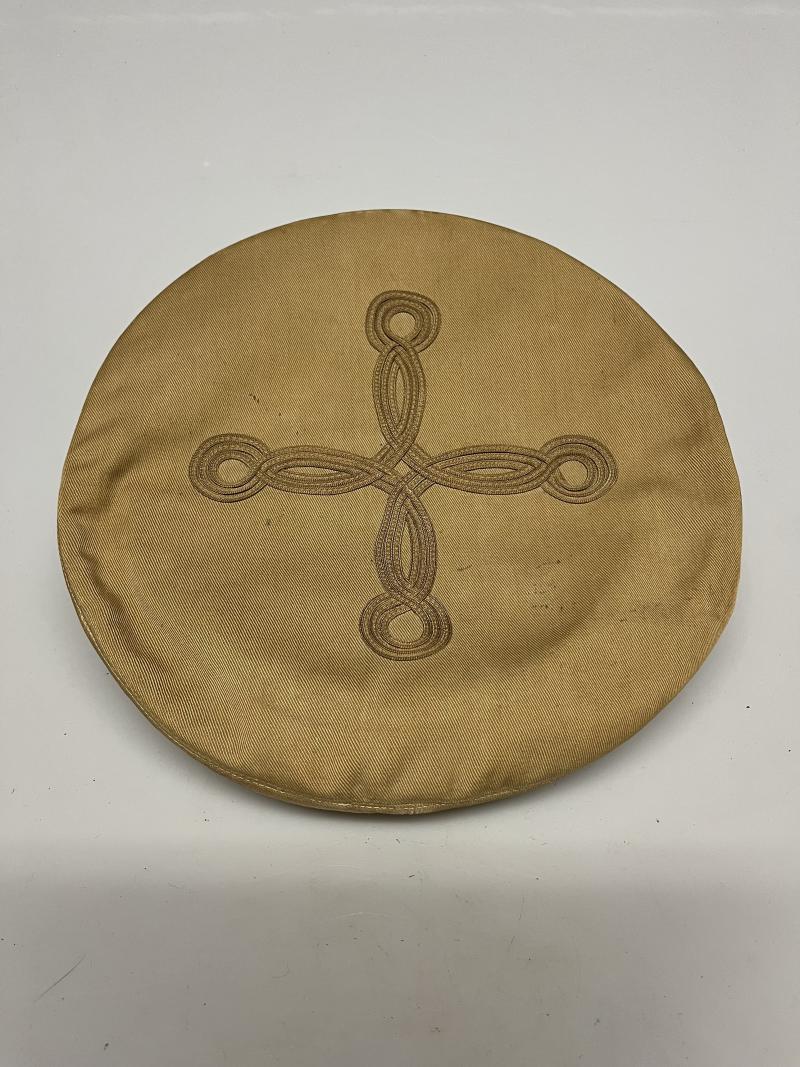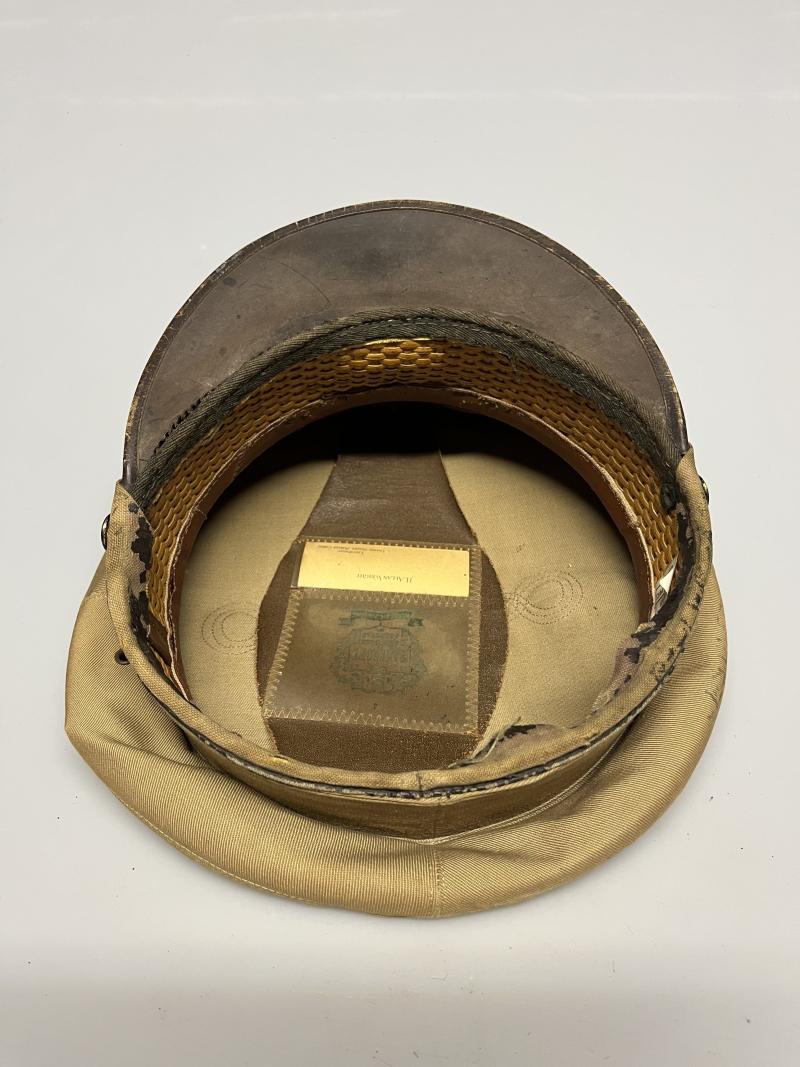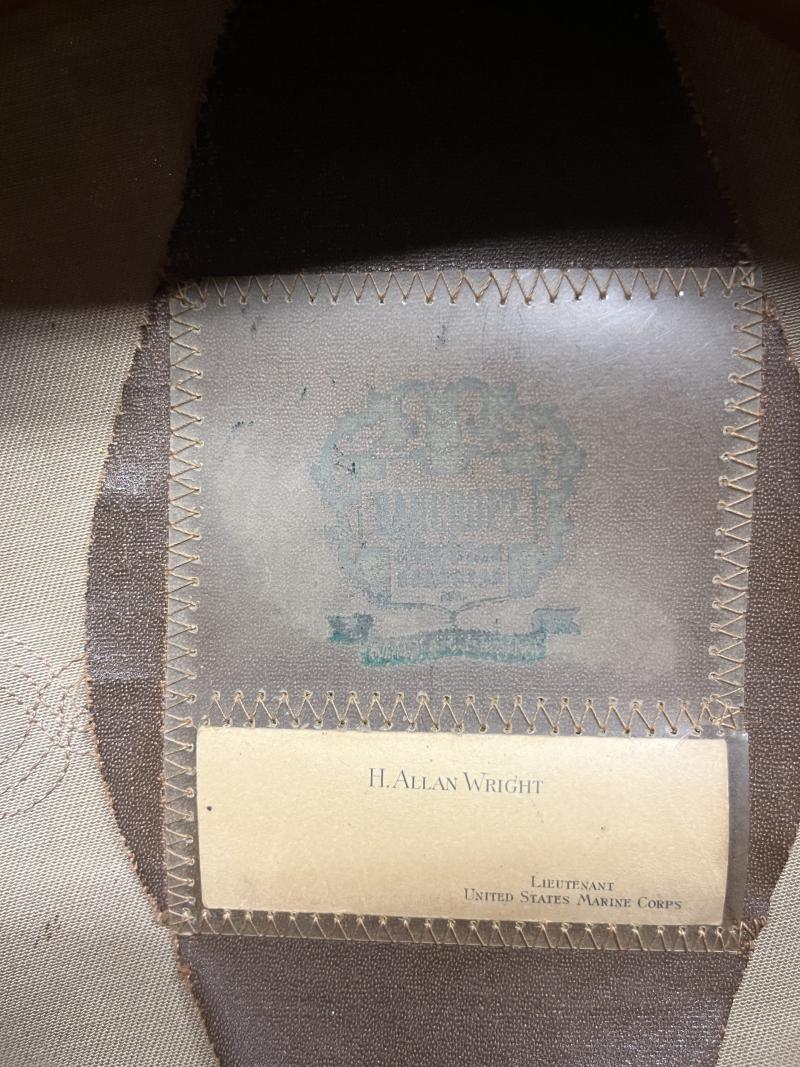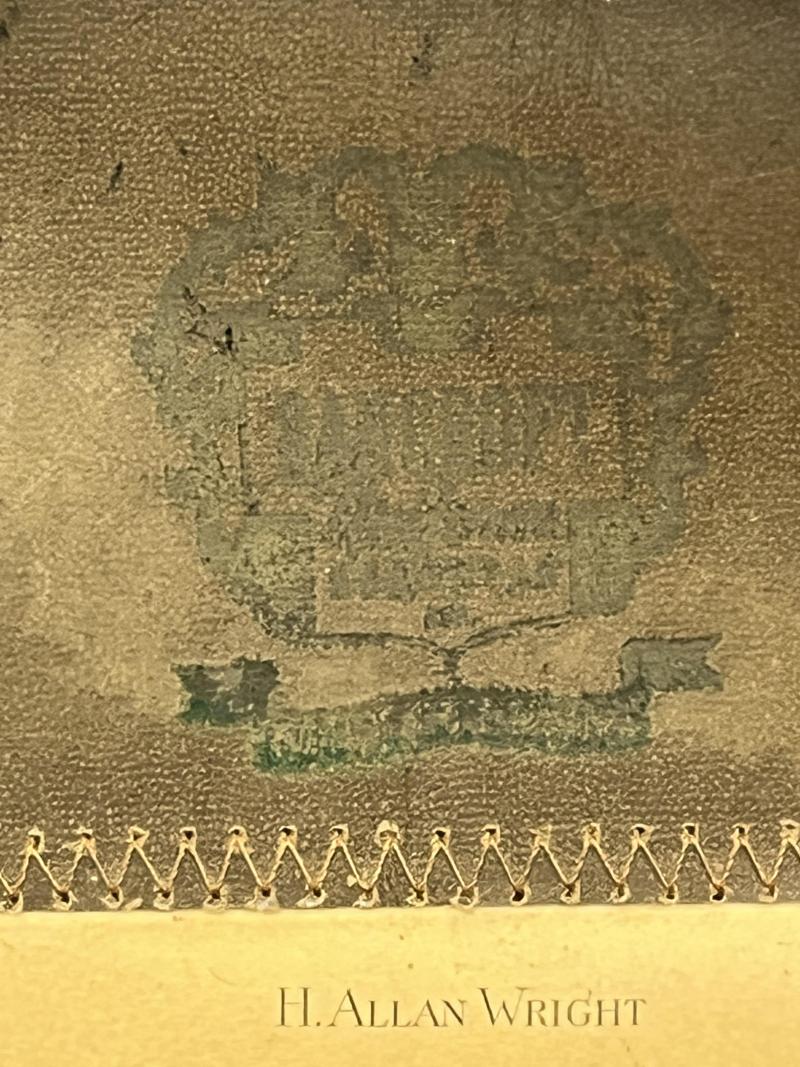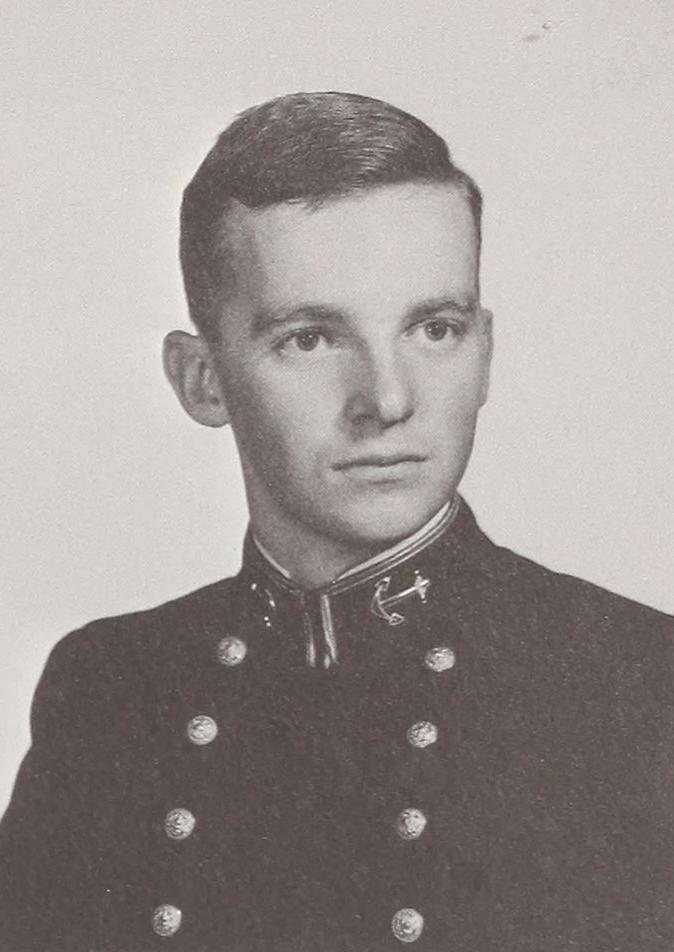United States Marine Corps, Officers, ‘Tropical’ Peaked Cap.
Was £160 now £140
A nice 'salty' example of a USMC, officers, Tropical, peaked cap.
Named to Lieutenant H. Allan Wright and retaining its Eagle and Anchor badge.
Worthy of further research, however, we believe that this may have belonged to HENRY A. WRIGHT, 2LT, USMC, killed in action on February 6, 1968 by small arms fire from North Vietnamese forces. He was a platoon commander with Company D, First Battalion, Seventh Marines. He had been in Vietnam for just over a month.
The son of Roy E. Wright and Marjorie J. Wright of Oakland CA, Henry was commissioned on June 7, 1967 and entered into service with the US Marine Corps at the US Naval Academy.
Arriving in Vietnam on January 5, 1968 2dLt Wright was assigned to Company D, 1st Battalion 7th Marines 1st MARDIV (Rein) FMF.
On February 6 at approximately 08:45 CAP B-4 located in the hamlet of La Chau became engaged with an enemy force and requested assistance. Company D, nearby on Hill 47 deployed a two squad reaction force supported by an M48A1 Tank to the scene of the fire fright. Approaching La Chau the Tank struck a mine becoming disabled as the Marines began to receive heavy automatic weapons fire, B-40 rockets were fired at the Tank setting it ablaze. Additional reinforcements and air support was requested by the Marines.
The action resulted in the deaths of eight Marines and one US Navy Corpsman, including 2Lt Wright who died as a result of a gunshot wound. Twenty men were also wounded during the fire fights with the enemy forces.
2Lt Wight received a posthumous award of the Bronze Star Medal with combat "V" for "heroic achievement while serving as a Platoon Commander ...on 6 February 1968.."
A Bronze Star Medal with combat "V" was awarded posthumously to Henry A. WRIGHT by the Commandant of the Marine Corps in the name of the President of the United States. Henry was killed in action 6 Feb. in Vietnam. The medal was sent to his mother, and notification to the class was made by his uncle, Capt. Gerald S. Norton, USN '39.
The citation stated:
"For heroic achievement while serving as a Platoon Commander with Company D, First Battalion, Seventh Marines, First Marine Division (Reinforced), in the Republic of Vietnam on 6 February 1968. While conducting operations in Quang Nam Province, two squads of Company C suddenly came under intense small-arms and automatic weapons fire from an estimated hostile force of two companies entrenched along a tree line in the vicinity of the village of La Chau. Upon learning of the situation, Lieutenant Wright immediately organized a reaction platoon and expeditiously moved his unit to the area of the fire fight to reinforce the beleaguered Marines. Arriving in the battle area, he completely disregarded his own safety as he exposed himself to enemy fire to move to a vantage point where he could analyze the situation and more effectively control and direct the actions of his men. He led an aggressive assault against hostile emplacements by skillfully directing his men by fire and maneuver across an open rice paddy in an attack that breached the center of the enemy line. When his radio operator was seriously wounded, without hesitation he placed the radio on his back and carried the injured Marine to a secure position, where he gave first aid to him. Quickly returning to his platoon, he continued to direct and influence the actions of his men and provide effective covering fire for the extraction of the wounded and the movement of his men to defensive positions, until he was mortally wounded by enemy fire. Due largely to his bold initiative and fearless action, he was instrumental in accomplishing the hazardous mission and saving several of his fellow Marines from further injury or possible death. His superior leadership, steadfast courage and selfless devotion to duty at great personal risk inspired all who observed him and were in keeping with the highest traditions of the Marine Corps and the United States Naval Service. He gallantly gave his life for his country."
Code: 472
140.00 GBP


